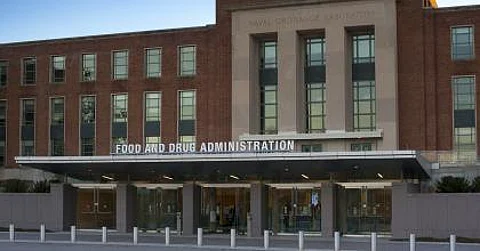
- NEWS
- the EDIT
- COMMENTARY
- BUSINESS
- LIFE
- SHOW
- ACTION
- GLOBAL GOALS
- SNAPS
- DYARYO TIRADA
- MORE

Rumors of an alleged ban on Philippine brands of banana ketchup, lechon sauce, and anchovy paste (bagoong) have prompted Filipinos in the United States to flock to stores, stock up, and hoard these condiments, leaving store shelves empty leading to a supply shortage.
On 25 October, a rumor began swirling on social media that the US would be banning items like Jufran Banana Ketchup, UFC Banana Ketchup and Mang Tomas All-Purpose Sauce (lechon sauce).
These rumors stemmed from a US Food and Drug Administration (FDA) ruling, which issued a Detention Without Physical Exam (DWPE) order, also known as Import Alert No. 99-45, targeting products worldwide that contain unsafe food additives.
This order mandates that imported products suspected of containing harmful ingredients are halted at US borders, effectively preventing their entry into the country.
Additives in products
The Philippine-made products mentioned above were only a few of those listed on the FDA’s website. Other products include:
HDR Foods Corporation
Kare-kare Stew Mix
Mother’s Best Hot All-Purpose Sauce (Sarsa Lechon Sauce)
Andok’s Litson Sauce (11.99 oz and 19.75 oz)
Heinz UFC Philippines Inc.
UFC Sweet Chili Sauce
Nutri-Asia Inc.
Mang Tomas All-Purpose Sauce (Regular and Hot&Spicy)
Jufran Sweet Chili Sauce
UFC Sweet Filipino Style Spaghetti Sauce
Jufran Banana Sauce (Regular and Hot&Spicy)
UFC Banana Sauce (Regular and Hot&Spicy)
Import alerts have been issued for products not just for the Philippines but also for numerous other countries.
Ingredients reportedly found in these Philippine-made products include butylated hydroxyanisole (BHA), a preservative and food additive with potential carcinogenic effects. It is commonly used as an antioxidant to prevent spoilage in products containing fats or oils.
When a carcinogen alters a person’s DNA, it can trigger a chain reaction that turns normal cells into cancerous ones, either by directly damaging the DNA or by overwhelming the cell’s ability to repair the damage caused by the carcinogen.
Some products also contain potassium iodate, a compound often used as a dough strengthener in bread and rolls; however, it has not been extensively tested and may pose a potential cancer risk.
Price increase
Naturally, those who love these products are devastated, as they have been a staple since childhood and an integral part of Filipino culture.
Filipino TikTok user @dinocornel criticized the ban, highlighting the shortage of his favorite condiment, Mang Tomas.
“I don’t know whose idea it is to ban Mang Tomas in America, but whoever you are, just know that the entire Filipino community, read my lips, we don’t like you,” he said.
“How [are] you going to tell us that this thing (Mang Tomas) is bad for us when we’ve been eating it our entire lives? Make that make sense.”
One can still purchase the products listed in this import ban until stocks run out.
This ruling prevents new versions of these products from entering the US Still, it doesn’t stop existing stock from being sold, which explains why videos are emerging of people shocked at their once-under-three-dollar condiments now costing $20 or more.
Enterprising grocery owners have reportedly raised the prices of banana ketchup in stock to $20 for a small bottle and $29 for a large bottle, up from the previous prices of $1.49 to $2.79.
Some Filipino-owned stores, however, have decided against increasing the prices.
Filipino TikTok user @mamalanlan22, who owns an Asian store called Tindahan in Florida, informed potential buyers about the possibility of a price increase.
“I’m not going to raise the price because that’s very unfair,” she said.
